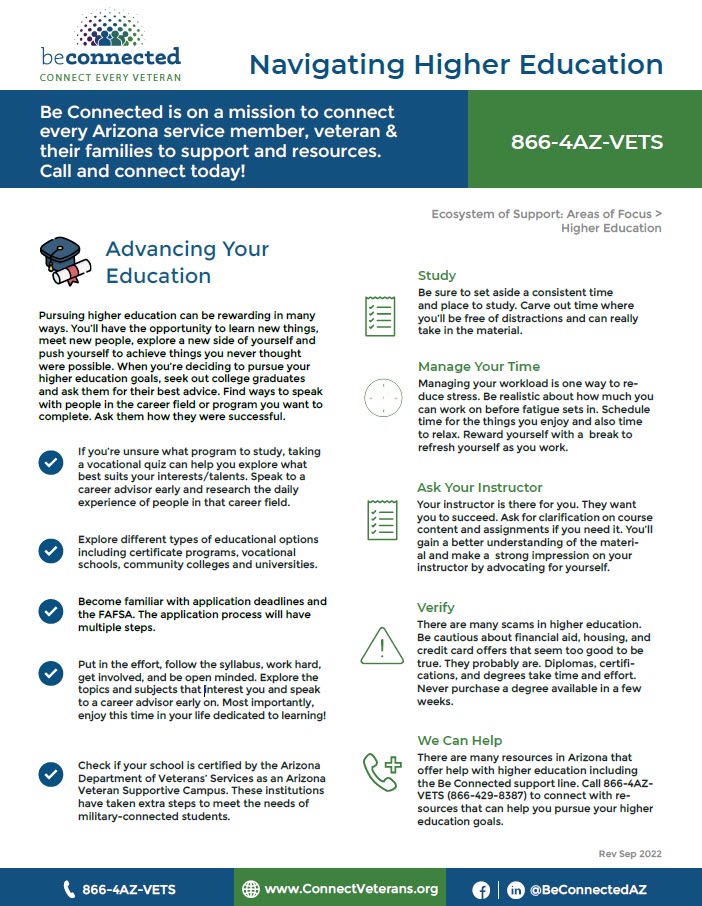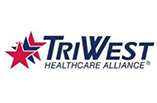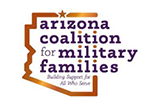Explore the 10 Areas of Focus within the The Be Connected Ecosystem of Support
Expanding the knowledge, skills and expertise of veterans, service members and their families through higher education to maximize learning and earning potential.

Even though the road through college is a tough one, the benefits and outcome, in the end, will be worth it. Take it slow, work hard, get involved, and be open-minded. Explore the topics and subjects that interest you and speak to a career advisor early on. Most importantly, enjoy it!
Higher Education FAQs
Many resources in the state of Arizona offer help, including community, government and military benefits. However, these systems can be complex and overwhelming to work through, especially when seeking a resolution to an immediate need. Be Connected uses a resource matching tool to help find the right information and resources that best fit your situation. Please call 866-429-8387 for additional assistance.
The ten areas of focus include Basic Needs, Employment, Family & Social Supports, Finances & Benefits, Higher Education, Housing & Homelessness, Legal, Mental Health & Substance Abuse, Physical Health and Spirituality.
Click here to view the other 10 Areas of Focus Be Connected can help with!





